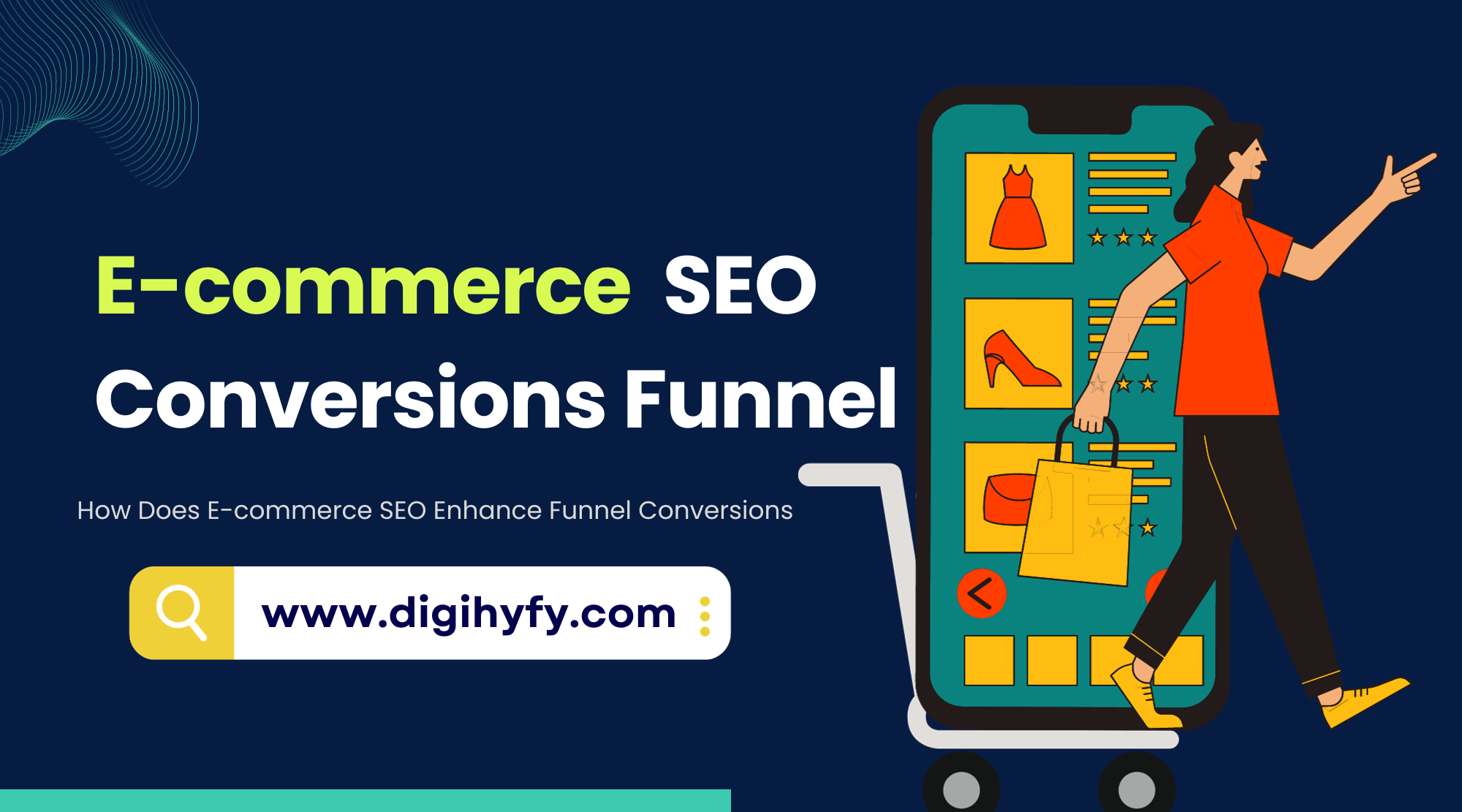
E-commerce SEO (Search Engine Optimization) plays a crucial role in enhancing funnel conversions by improving the visibility, credibility, and user experience of an online store. Here’s how it contributes to each stage of the conversion funnel:
- Awareness Stage:
- Keyword Research: SEO begins with identifying relevant keywords that potential customers use to search for products. By optimizing your content for these keywords, you increase your store’s visibility in search engine results pages (SERPs), making it easier for users to discover your products.
- Content Marketing: High-quality blog posts, product guides, and informative content not only attract potential customers but also establish your brand as an authority in your industry. This can help users become aware of your store and offerings.
- Interest and Consideration Stage:
- Optimized Product Pages: SEO ensures that your product pages are well-structured and contain relevant information. This makes it easier for users to find the details they need to make informed decisions.
- User Experience (UX): SEO includes optimizing the site’s speed, mobile-friendliness, and overall user experience. A fast, user-friendly website encourages users to explore and engage with your content and products.
- Backlinks and Social Signals: High-quality backlinks from authoritative websites and social signals (engagement on social media) can enhance your site’s credibility, making users more likely to trust your brand and consider your products.
- Desire and Intent Stage:
- Product Reviews and Ratings: Positive reviews and ratings, which can be influenced by SEO efforts, build trust and confidence in your products. Include customer testimonials and encourage reviews to persuade users to purchase.
- Competitive Analysis: SEO also involves analyzing your competitors’ strategies. This can help you identify gaps in your offerings or opportunities to differentiate your products, making them more desirable to potential customers.
- Action Stage:
- Optimized Checkout Process: SEO can indirectly influence the checkout process by improving the overall user experience. When users have a smooth experience on your site, they are more likely to complete the purchase.
- Local SEO: For e-commerce stores with physical locations, local SEO tactics such as optimizing Google My Business listings can drive foot traffic to physical stores, thus increasing conversions.
- Retention and Advocacy Stage:
- Content Continuation: After the purchase, SEO can help you retain customers by providing valuable post-purchase content, such as guides on using the product, maintenance tips, or related product recommendations.
- Email Marketing: SEO can contribute to building a larger email subscriber list, which you can use for email marketing campaigns to encourage repeat purchases and customer advocacy.
- Analysis and Optimization Stage:
- Data Analytics: SEO also involves monitoring and analyzing data, such as traffic sources, conversion rates, and customer behavior. This data-driven approach helps you optimize your funnel continuously based on user insights.
In summary, e-commerce SEO enhances funnel conversions by driving organic traffic, improving user experience, building credibility, and optimizing content and product information to cater to each stage of the customer journey. By implementing effective SEO strategies, you can increase your e-commerce store’s visibility, attract qualified leads, and ultimately boost conversions.